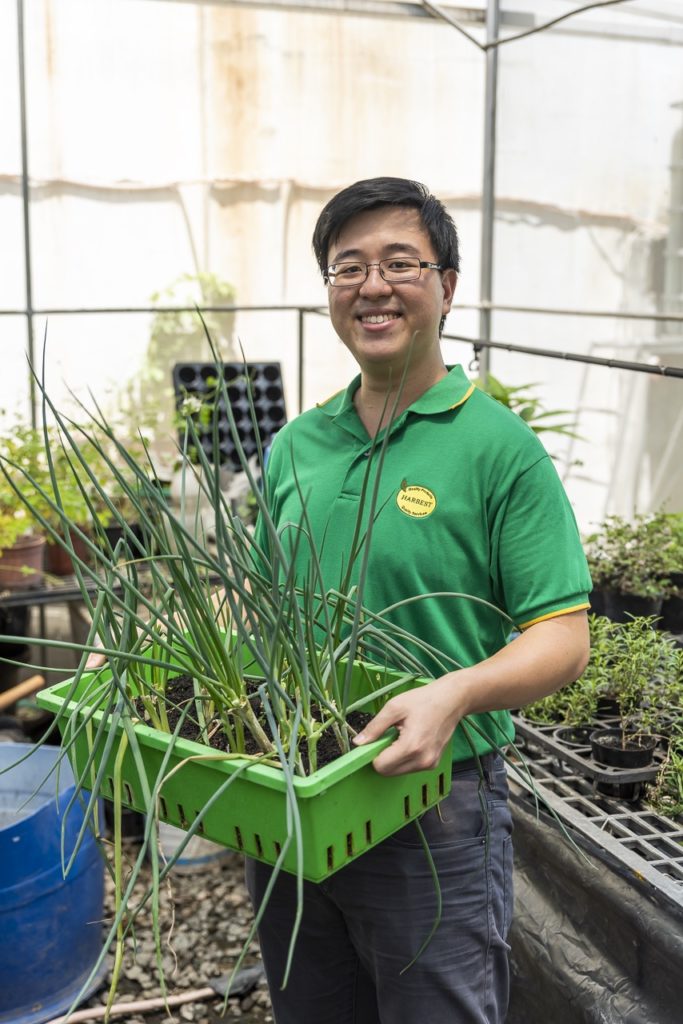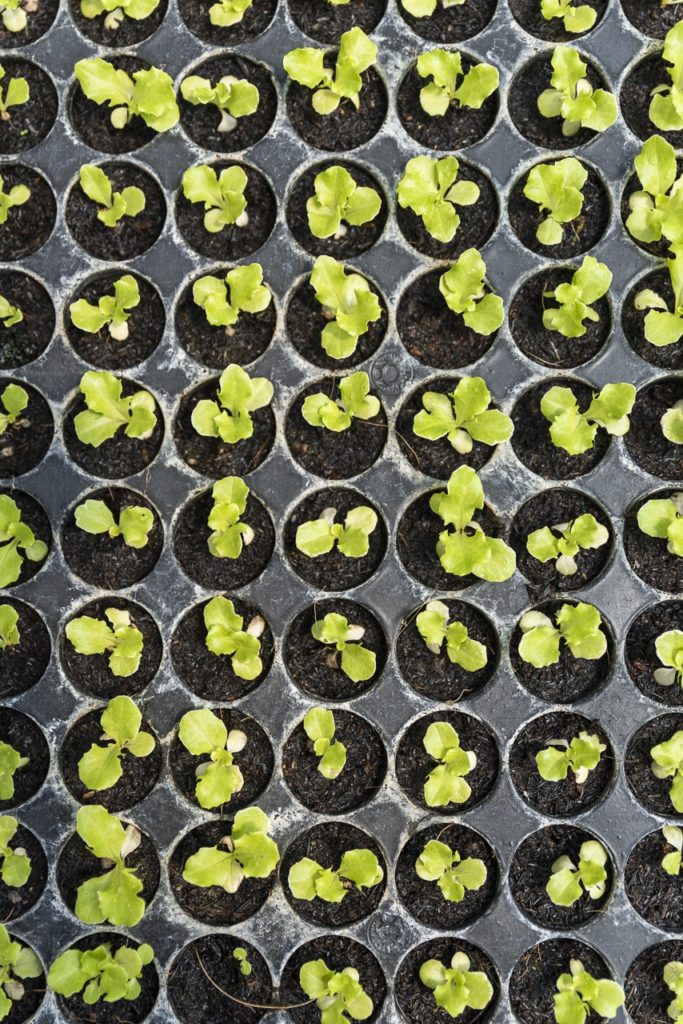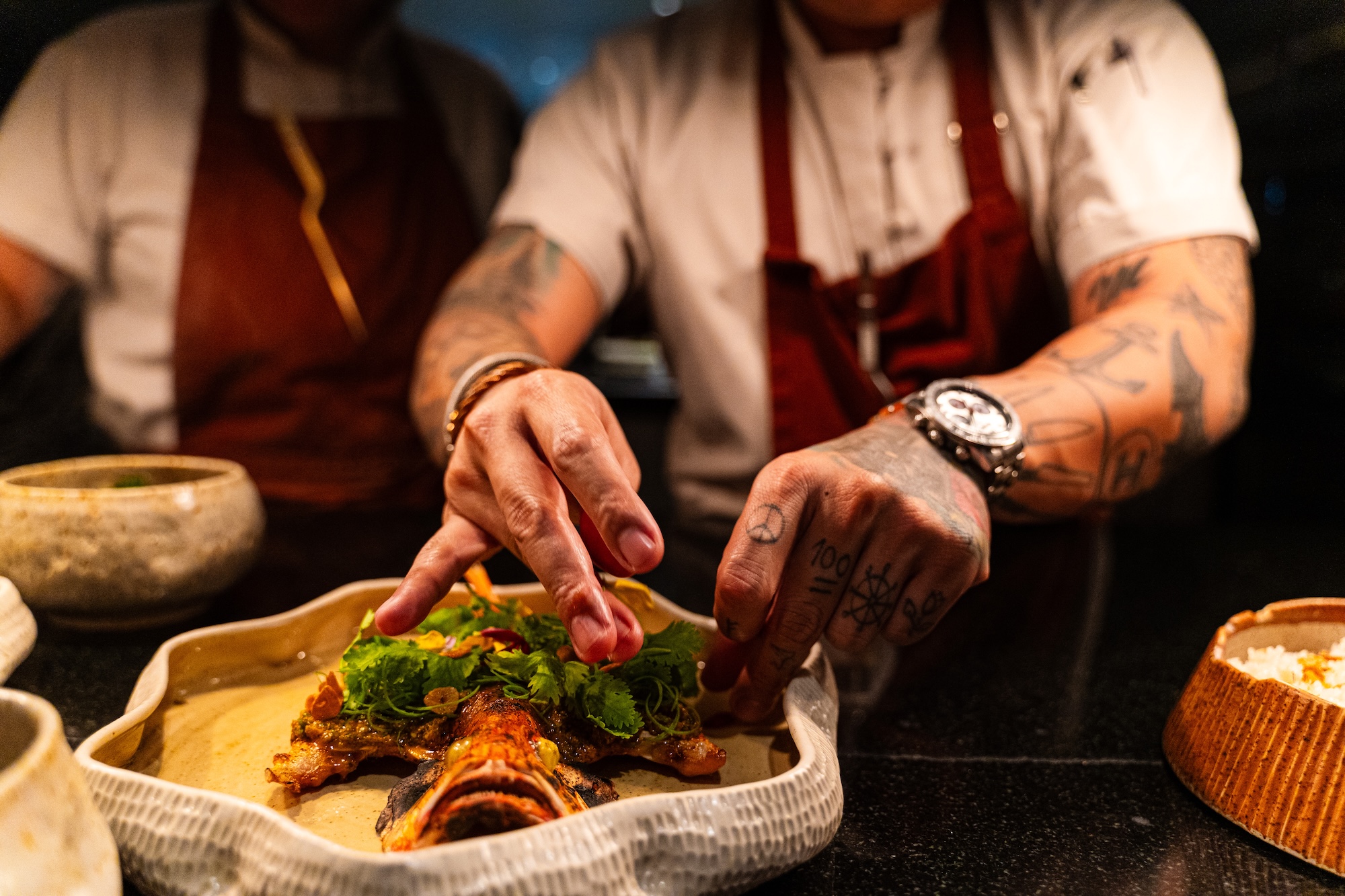Urban farming is akin to courting. It requires a lot of attention, time, and patience.
“Think about it like a person you’re after,” says Julius Barcelona, executive assistant at the family-run Harbest Agribusiness Corporation. “It’s like going on a date with someone and wanting him or her to be your boyfriend or girlfriend immediately. That’s not how it works. Time and effort should be put in.”
He should know. As someone who handles plant nutrition, which requires much research and study on how to maximize the productive potential of plants using different types of bio stimulation and supplements, he is well-versed on how sensitive and fragile they can be—“they” referring to both plants and relationships.

His first date
Harbest is a company his father Arsenio set up back in 1997. They initially began with the distribution of hybrid seeds. “Way back then, farmers didn’t have access to such seeds so productivity was low. We started by introducing high-quality hybrid seeds in the Philippines,” says Barcelona. “Then we discovered that there was a lot lacking in the technological and technical side so we now supply almost all of the requirements in a farm, including turnkey projects like the greenhouse, small-scale machineries, organic supplements, and pest control. Practically everything you need to put up a legit farm.”
Urban agriculture was Barcelona’s own pet project. Given the inaccessibility of resources and information about the subject locally, he was driven to give it a try and hopefully, based on real experience, show people that it can be done. “The major driving force really was to show that it’s possible.”
For his first project, he used the rooftop of their four-story office in Kapitolyo, Pasig. “It was pretty bare when I started. The company had a garden before but it was neglected. There was a pot with a mango tree in it and just some plants hanging on to life.”
Armed with determination, theoretical knowledge, some practical experience, and clothing protection from the summer sun, he cleared out the space and put into practice what he learned over the years. He started with just a couple of trays, as it was easier to track the progress of the seeds. Pushing the analogy of a date, he was at the getting-to-know-you phase. Unfortunately, he failed, as the meetup didn’t blossom into anything. It was February 2017 and the harsh heat prevented the seeds from developing.

“You don’t get to know much about a person from a single date. In the same way, when you look at land, it has a temper and an attitude; the climate changes over time; the conditions are different. You have to study, understand, and build a relationship with it. Only then will you discover the best way to work with your land.”
So the next thing he did was put netting on the rooftop to bring down the temperature and figure out the best way to water the plants. “We couldn’t do a one-size-fits-all for the plants because some of them require more water than the others.” Towards June the weather was cool enough for tomatoes, arugula, ginger, butterfly pea, cucumbers, leafy vegetables like lettuce, and herbs like basil and oregano to finally grow properly. He has had five cycles of food from then until March this year, when they had to halt operations because of the intense season.
“You don’t get to know much about a person from a single date. In the same way, when you look at land, it has a temper and an attitude; the climate changes over time; the conditions are different. You have to study, understand, and build a relationship with it. Only then will you discover the best way to work with your land,” says urban farming expert Julius Barcelona.
What he currently grows is just enough to feed and satisfy their family of five. But once they open their bigger office in Taytay, Rizal that has a 600-square-meter rooftop compared with the 40-square-meter space in Kapitolyo, he can sell his harvest and turn urban farming into something viable, profitable, and commercial.
Relationship goals
There are a few requirements when engaging in this commitment: sunlight, water, and time. Money is debatable, as Barcelona has witnessed people grow plants in empty tubs of ice cream as well as a discarded, non-functioning refrigerator. You can be as DIY about it as you want.
“I doubt urban farming will ever be a trend because it involves a lot of effort. When you’re dealing with something like this, involving something living, that’s a commitment. It won’t be a trend but more of a movement that will build overtime,” says Julius Barcelona.
“We have to keep educating people that putting up a farm is dealing with living things. It’s not like raising a kid by throwing them in the daycare and expecting them to grow up perfectly fine and healthy. That doesn’t work. Being a farmer is a full-time job. You need to want to be a farmer to do it.
As for proximity, you don’t need to travel far to tend to your vegetables. Urban farming enables you to enjoy fresh produce all-year-round and also just as much as you need daily. It can be therapeutic and social. It’s small-space-friendly—you can have the plants hanging on your walls. Plus, it’s satisfying and fulfilling as you get to see visible results of the work and sweat you’ve put in. Best of all, it’s good training for starting and, well, keeping a relationship.
Originally published in F&B Report Vol. 15 No. 3









































